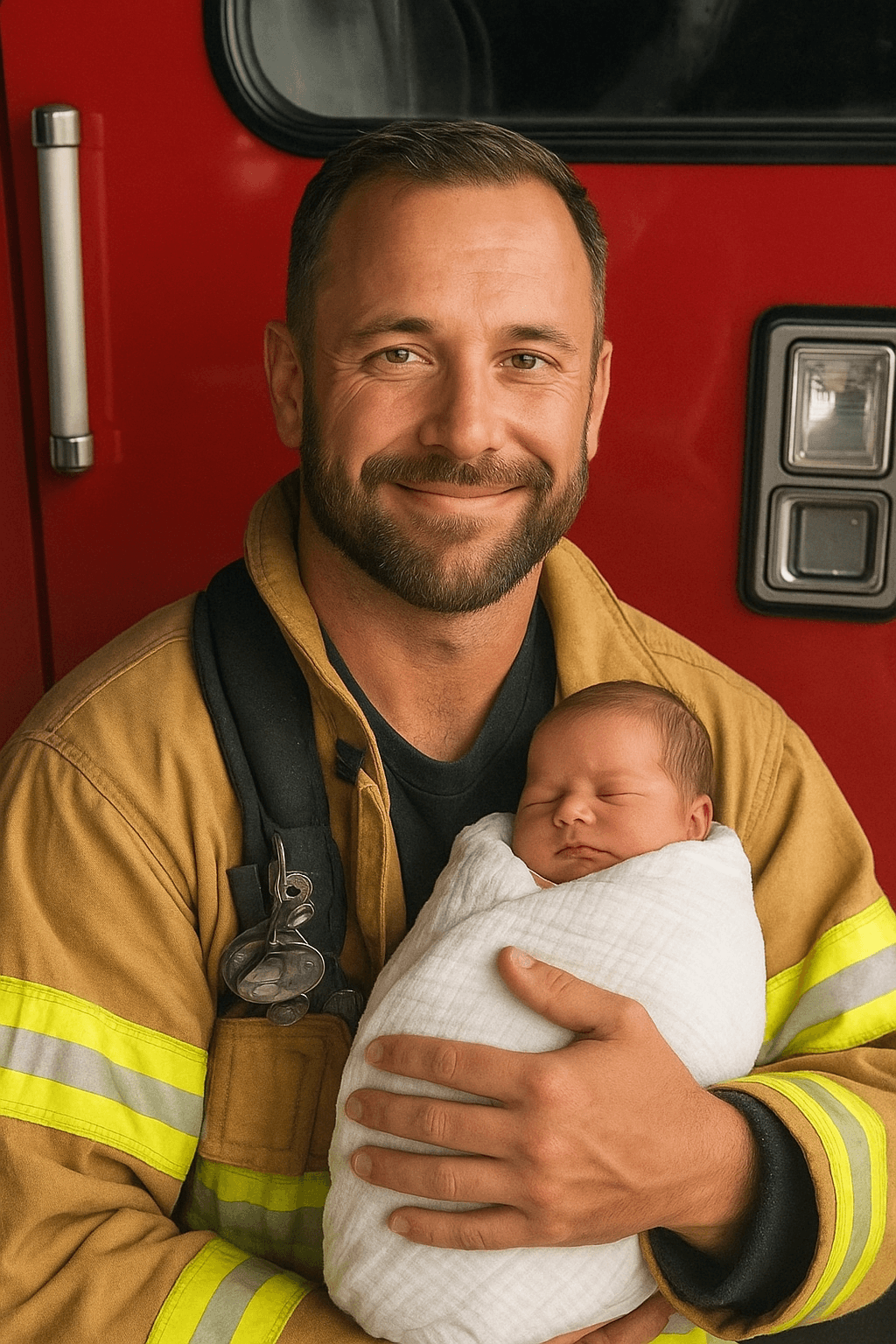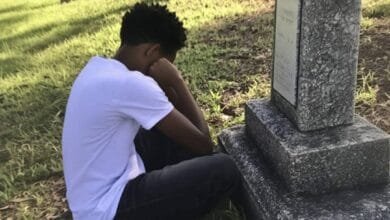I Adopted a Baby Left at the Fire Station — Five Years Later, a Woman Knocked on My Door and Said: “You Have to Give Me Back My Son”

Five years ago, I found a newborn baby abandoned at the door of Fire Station No. 14. It was a cold night, the wind was rattling the windows, and I was sipping lukewarm coffee when my partner, Joe, walked in with his usual half-smile.
“If you keep drinking that mud, you’re gonna end up with an ulcer,” he joked, pointing at my cup.
“It’s caffeine. Doesn’t work miracles, but it keeps us awake,” I replied.
That’s when we heard a faint cry. We stepped outside and found a basket with a baby wrapped in a worn-out blanket. His eyes were wide open, and his tiny hands trembled from the cold. Joe froze in place. I knelt and gently picked the baby up. He gripped my finger so tightly that something inside me changed.
We called Child Protective Services (CPS). In the following weeks, I couldn’t stop thinking about him. I called CPS multiple times to check in. They had named him “Baby Boy Doe.”
Over time, I began the adoption process. It was long, difficult, filled with paperwork, social worker visits, and countless questions. But finally, after months, he was officially my son. I named him Leo — he roared at challenges like a little lion.
Life with Leo was an adventure: chaotic mornings, mismatched socks “because dinosaurs don’t care about colors,” cereal all over the floor, questions about pterosaurs, and bedtime stories corrected by him.
Joe became the unofficial uncle, always around. Parenthood was tough — but it was amazing.
Then, on a seemingly ordinary night, while we were building a cardboard Jurassic Park, someone knocked on the door. It was a woman, tired-looking, eyes full of tears.
“You have to give me back my son,” she said with a trembling voice.
I stepped outside and closed the door behind me. “It’s been five years. Where have you been?”
She explained: she had no home, no money, no options. Leaving him at the fire station seemed like the best she could do.
“I don’t want to take him away,” she said. “I just want to meet him.”
Leo peeked from around the corner. “Dad? Who is she?”
“Someone who knew you when you were a baby,” I replied.
She dropped to her knees. “Leo… I’m the woman who brought you into this world.”
Leo gripped my hand tightly. “Do I have to go with her?”
“No,” I said. “You’re staying here.”
She cried. “I just want a chance to be part of his life.”
I hesitated. But something in her pain moved me. In the following days, she started showing up at his soccer games, bringing books, sitting far away without intruding.
Leo slowly began to accept her. One day, after a game, he asked, “Can she come with us for pizza?”
Her name was Emily.
Over time, she became part of our routine. I never tried to replace her, and she never tried to take my place. We became a different kind of family — but a real one.
Years later, Leo graduated from high school. Emily and I sat side by side, crying with pride.
She whispered, “You’re a good father.”
“And you’re not a bad mom,” I replied.
Family isn’t about perfection. It’s about presence, love, and growth.
And in that unexpected journey, we won — together.
Awareness Text: Financial Loans — Solution or Risk?
Financial loans are often the option chosen by those facing difficulties or seeking to achieve a specific goal, such as starting a business, paying off debt, or investing in education. However, this decision must be taken with caution, planning, and a lot of information. After all, a loan can either be a step toward realization or a plunge into deeper problems.
The main trap with loans is believing that the money received immediately solves all problems — without considering the long-term impact of repayments. When you take out a loan, you’re committing part of your future income. And in times of instability — like job loss or rising living costs — this commitment can become a heavy burden.
Moreover, many people don’t carefully analyze the interest rates. Loans with high rates, especially those offered by unreliable lenders or through unregulated digital platforms, can turn a simple debt into a serious issue. It’s essential to compare offers, understand the APR (Annual Percentage Rate), and avoid “miracle solutions” or “easy money.”
Before taking a loan, ask yourself:
- Do I truly need this money right now?
- Is this debt productive (will it generate returns) or just consumer-driven?
- Can I afford every installment without compromising my basic needs?
- Have I explored all alternatives before taking on this debt?
If a loan is unavoidable, do your research, run simulations, negotiate. Banks, credit unions, and credible fintechs offer safer options. Choose realistic terms and, if possible, keep an emergency fund.
Above all, a loan should be a tool for solutions, not an escape. When used wisely, it can help change someone’s reality. But when taken out in desperation or impulse, it turns into a snowball — one that consumes not only money but mental health, relationships, and future plans.





